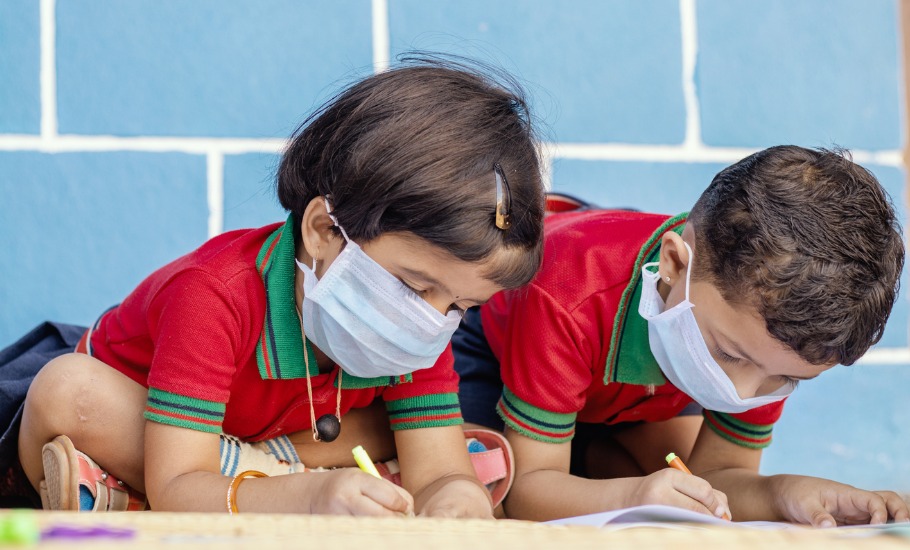
Anxious about COVID 3.0? Take these steps to keep your children safe
The Ayush Ministry has come out with extensive guidelines on how parents can help prevent COVID infections in their children

Just as the second wave of COVID is plateauing, there are recurrent reports of the third wave possibly impacting children the most. While there is no scientific backing for the concern, the fact remains that children in India are a vulnerable population since there is no COVID vaccine for them yet. Also, several drugs such as Remdesivir are not recommended for them.
Hence, parents are told to exercise extreme caution to prevent their kids from catching the viral infection. “In the initial phase of the pandemic mostly adults and elderly people were got affected. But in second wave of infection, incidences in children are increasing alarmingly,” noted the Ayush Ministry on its website.
“Though the immunity of children is quite strong, with many mutant virus strains emerging, it is necessary to follow all protocols related to COVID to prevent its effect,” it said. Further, the Ministry has issued homecare guidelines for protecting children against the disease.
The preventive guidelines roughly fall under four main categories: hand-washing, masking, social distancing and respiratory hygiene.
It’s important to wash hands
About 15 months after the onset of the pandemic this remains the refrain: wash your hands often, wash them well. Ayush recommends that parents educate their children to regularly wash their hands for minimum 20 seconds with soap and water, while singing rhymes/songs.
Also read: Centre revises COVID treatment guidelines for children
If soap and water are not available, alcohol-based hand sanitiser with at least 60% alcohol can be used, it says. It’s important that children be trained to wash hands “after using toilets, coughing, sneezing, nose-blowing, before eating and immediately when coming inside from outdoor play”.
For kids not too keen on soap and water, Ayush has a solution. “Offering a small reward may be helpful in case the child is not willingly washing their hands,” it says.
Mask up well
The Ayush Ministry guidelines recommend that parents educate their children about the importance of wearing masks, particularly in public spaces. “For children aged 12 and over mask is mandatory, supervision is not required,” it says. “For children aged 5-12 years mask is mandatory, under parent’s supervision. For 2-5 years of age mask is desirable, under the parent’s supervision.”
It advises against the use of masks for kids below two years of age, those with breathing difficulty or unconsciousness, and those who can’t remove the mask without help.
The guidelines further say: “Parents should ensure adequate stock at home. Children and adolescents like attractive, colorful, trendy masks. Provide them with such masks for good compliance.”
While the Ministry is for three layered cotton masks, it is not in favour of valve masks. Additionally, it has a set of guidelines on how kids should wear and removed the masks, how they should be washed, stored and disposed of.
Stay home, keep a distance
The Ayush advisory says kids should “avoid attending public functions, social gathering, crowded places like parks, religious places, markets and group play”.
“Help the kids stay connected with friends and extended family members through available sources like video and phone calls,” it tells parents. “A distance of preferably 6 feet or at least 3 feet should be observed while outside the house.”
Respiratory hygiene is key
“Educate children to cover their nose and mouth with tissue paper/handkerchief or with bent elbow or in sleeve when coughing or sneezing. Care should be taken that the droplets do not touch the palms or are not be liberated in the air,” says the advisory.
It further recommends social distancing with anyone who is coughing or sneezing.
The Ayush Ministry also has extensive guidelines on how parents should handle various clinical situations involving COVID. These include infections in newborns, young mothers, etc. It also suggests how parents set routines for their kids, ensure healthy meals and good sleep.
In a piece of advice that the kids are sure to approve, the Ministry tells parents: “Remember that not the academics but survival and good health are priorities in the pandemic. Ensure that they are connected to the school in some way or the other. Help them in studies but do not stress on academics.”
More information can be found on the Ayush Ministry website.


